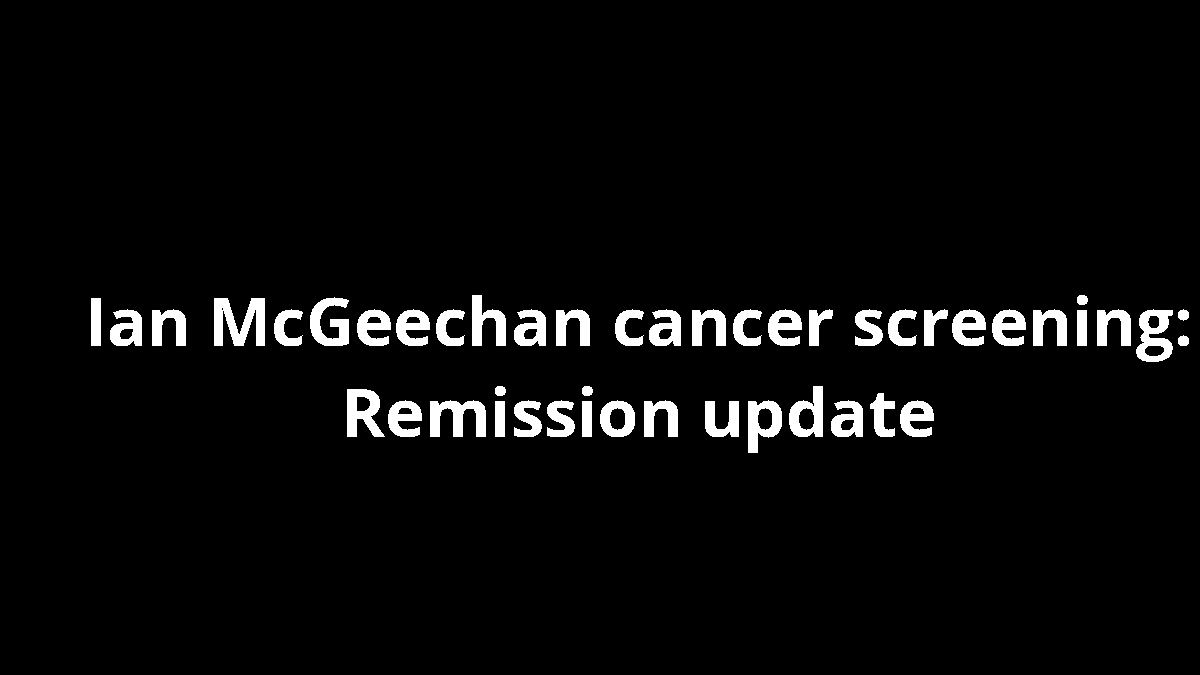Ian McGeechan declares prostate cancer in remission and calls for national screening
Ian McGeechan cancer screening revealed on Tuesday that the disease is in remission. The Ian McGeechan cancer screening update confirms the prognosis and offers hope for dozens of families facing similar battles. The Ian McGeechan cancer screening story underscores the value of early detection and regular tests. The Ian McGeechan cancer screening calls for sustained public health action to ensure accessible screening for all ages.
Remission confirmed by medical team
Doctors say the latest scans show no active disease. This update strengthens the message that vigilance and timely checks can dramatically alter outcomes. For rugby fans and wider communities, the remission news provides a clear example of how clinical care and personal resilience work together. The ongoing Ian McGeechan cancer screening narrative reminds supporters that monitoring is a lifelong responsibility, not a one-off step.
Public health implications
Leaders stress that recovery stories should translate into policy momentum. In sport circles, the remission outcome has become a catalyst for a broader push toward nationwide screening. Public health experts say access, affordability, and awareness are the three pillars of effective screening strategies. To inform readers with reliable context, outlets such as BBC Sport Rugby and World Rugby have highlighted how early intervention saves lives. These voices connect the rugby world with national health initiatives and underscore the potential of sport to drive policy action.
Rugby icon uses platform to press government for cancer screening programme
The former captain is using his megaphone to urge a government-backed screening programme. The aim is to remove barriers to access and to ensure men across age groups understand the value of regular checks. This is not just a personal campaign; it is a public health movement rooted in shared responsibility and evidence-based practice. The message is simple: early detection saves lives, and national screening can broaden that protection for families across the country.
Platform for policy change
McGeechan has spoken to politicians and health advocates, illustrating how a sports figure can influence policy conversations. He argues that a national screening programme should be funded, standardized, and clinically integrated with primary care. The rationale rests on improved survival rates and the easing of late-stage treatment burdens. However, translating intent into implementation requires sustained political will and practical funding models.
Public health statistics and risk awareness
Public health analysts point to age-based risk and community testing data to tailor screening invitations. The conversation around risk awareness is about moving from general awareness to targeted outreach. The campaign uses relatable narratives to explain why testing matters, especially for populations with higher incidence rates. For readers seeking context, reviews from BBC Sport Rugby offer background on how athletes advocate for health equity, while World Rugby provides global perspectives on athlete-led health initiatives.
Rugby community response
Many players, coaches, and fans have expressed support for McGeechan’s call. The momentum within the sport reflects a wider societal appetite for proactive health measures. Supporters emphasize that a national screening programme would reduce disparities and catch cancers earlier when treatment is most effective.
Leeds Beckett University honors Sir Ian McGeechan in new sport hall of fame
The university welcomed Sir Ian McGeechan into its sport hall of fame, recognizing a career defined by excellence, leadership, and community impact. The ceremony highlighted not only his on-field achievements but also his off-field advocacy for health awareness and early detection. Leeds Beckett’s tribute underscores how athletes shape public discourse beyond sport, using their platform to champion issues that affect fans and families around the country.
An alumnus who embodied resilience
Colleagues describe McGeechan as a model of perseverance, both in the heat of competition and in confronting personal health challenges. The new hall of fame acknowledges his journey as a source of inspiration for current students, aspiring coaches, and future generations of players who value discipline, teamwork, and civic responsibility. The recognition also demonstrates how universities can connect athletic achievement with public health advocacy.
Legacy on and off the field
Beyond medals and records, the award signals a lasting impact on rugby culture. The message is clear: leadership means more than tactics; it means using influence to advance vital health causes. As the hall of fame ceremony concluded, the conversation turned to how former players can help shape health policy and improve screening uptake among at-risk groups. For readers seeking broader context, industry reviews and features at BBC Sport Rugby provide coverage of the event and its significance for the rugby community.
McGeechan’s first TV interview confirms cancer remission and advocacy for early detection
In his first televised discussion on the topic, McGeechan reflected on the emotional journey from diagnosis to remission and emphasized the importance of early detection. He described how the experience reshaped his perspective on health, family, and public responsibility. The interview offered a candid look at the realities of cancer, the reassurance of remission, and the imperative to advocate for accessible screening for all. Viewers were reminded that champions can also be champions for public health, using their influence to drive practical action and policy change.
First TV appearance details
The interview covered the timeline of treatment, the careful monitoring that followed, and the moments of doubt overcome by support networks. McGeechan’s openness resonated with viewers who have faced similar health challenges, reinforcing a message of hope intertwined with responsibility. The conversation also highlighted how media appearances can humanize medical journeys and mobilize a broader audience to participate in screening initiatives.
Impact on health campaigning
The television appearance amplified calls for national screening programmes and public health education. Advocates argue that visibility from high-profile figures can accelerate policy discussions, funding commitments, and outreach campaigns. As communities digest the interview, experts hope the focus will shift from awareness to action—ensuring screening is both accessible and timely for all at-risk populations. For ongoing coverage, readers can explore in-depth segments and expert commentary at BBC Sport Rugby and related outlets that track health innovation within sport.


